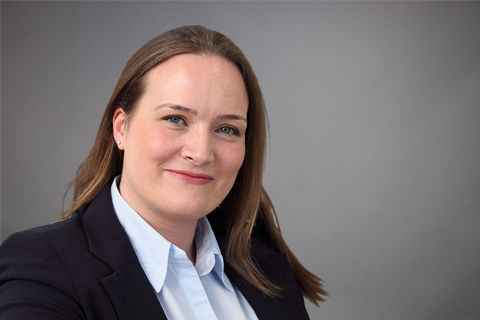Withdrawal of the NHS COVID-19 workforce guidance – further update for employers
12/07/22As reported in our insight published on 6 July 2022, the Government has withdrawn the staff terms and conditions section of the COVID-19 workforce guidance in England with effect from 7 July 2022.
The NHS Staff Council has now issued joint guidance to support NHS employers in England in the management of (1) the transition of staff back to their normal contractual sick pay arrangements, and, (2) any new COVID-19 cases from 7 July 2022 onwards.
We summarise the changes and the updated guidance below.
Management of COVID-19 sickness absences that commenced before 7 July 2022
Those who are in receipt of enhanced COVID-19 sick pay from an episode of absence commencing before 7 July 2022 will continue to receive COVID-19 sick pay whilst they remain absent up to and including 31 August 2022.
Employers will need to take the following immediate action during the transitional period (7 July - 31 August 2022):
- Identify those in receipt of enhanced COVID-19 sick pay from an episode of absence commencing before 7 July 2022
- Engage with local trade union representatives to agree a partnership approach
- Make all reasonable attempts to meet with affected staff on a one-to-one basis to explain the changes and how they affect them no later than 3 August 2022
- Give affected staff four weeks’ formal notice of the change effective from 4 August 2022. Employers should confirm the notice period in writing on or before 3 August 2022, together with details of their contractual entitlements and how their ongoing sickness absence will be handled.
Staff who remain absent due to COVID-19 sickness on 1 September 2022 will receive sick pay from that date in accordance with their usual contractual terms and conditions (section 14 of AfC).
Points to note
- Calculation of sick pay - any period of COVID-19 sickness that commenced before 7 July 2022 will not be counted for the purposes of calculating entitlement to contractual sick pay – so the contractual sick pay entitlements of staff who are still off sick with COVID-19 sickness by 1 September 2022 will effectively be intact from 1 September 2022. Conversely, any period of absence that commences on or after 7 July 2022 will be counted.
- Absence management triggers – any period of COVID-19 sickness that commenced before 7 July 2022 and continued up to and including 31 August 2022 will not be counted for the purposes of sickness absence triggers. Although not said expressly in the updated documents from the NHS Staff Council, given that there is a clear move to standard sickness absence management processes, it is reasonable to adopt the position that usual absence triggers can now be applied to COVID sickness absences going forward (unless it is appropriate to apply the flexibilities in section 14.13 of AfC or in line with the duty to make reasonable adjustments for any staff that might be deemed disabled under the Equalities Act 2010).
Management of new periods of COVID-19 sickness
Any new episode of absence due to COVID-19 sickness that commences on or after 7 July 2022 should be dealt with and paid in accordance with the individual’s usual contractual terms and conditions (section 14 of AfC), again taking account of the need to make reasonable adjustments for those whose condition meets the definition of a disability.
Management of long COVID sickness absence cases
Employers should continue to manage all long-term COVID-19 sickness absences in accordance with the NHS Staff Council’s long-term COVID-19 absence management guidance and make every effort to facilitate a return to work before any decisions are made to dismiss. Further guidance is also available in NHS England’s Guidelines for supporting our NHS people affected by Long COVID.
The NHS Staff Council’s COVID-19 sickness absence management FAQs specifically cover a query on the use of phased returns in Long COVID cases. It recommends that you follow local absence policies, seek Occupational Health advice and consider phased return periods that are longer than usual, in order to avoid premature and unnecessary ill health retirements.
Employers should bear in mind that it may be appropriate in any individual case (including COVID sickness absence cases) to extend / increase the level of sick pay entitlement under the discretion allowed under paragraph 14.13 of AfC and in accordance with an organisation’s usual procedures for doing so.
This is highlighted in the NHS Staff Council’s COVID-19 sickness absence management FAQs which advise employers to consider using section 14.13 to support staff who “have not been able to access timely treatment or support to aid their recovery and return to work, as a result of the pandemic.”
Employers should also ensure parity of treatment with employees who are on long-term sickness absence for non-COVID related reasons, where appropriate, to avoid creating a two-tier workforce and potential disability discrimination claims.
Infection control and self-isolation
On 1 April 2022, the UK Health Security Agency (UKHSA) issued guidance on Managing healthcare staff with symptoms of a respiratory infection or a positive COVID-19 test result.
It recommends that patient-facing healthcare staff carry out routine twice weekly asymptomatic testing. However, employers can require non-patient facing staff to carry out routine testing if required by their infection control risk assessments.
Staff with a positive LFD test result should isolate for five days (even if they are asymptomatic and feel well despite testing positive). Staff can then return to work (if they feel well enough to do so) once they have received two negative LFD test results, taken 24 hours apart.
NHS England updated its standard operating procedure on symptomatic and asymptomatic staff testing on 26 April 2022 to reflect the UKHSA guidance. This also notes that “it is a statutory duty that all test results are reported, whether they are positive, negative or invalid/void”. Reporting should be via an online portal or to their employer to include it in their weekly report to NHS Digital.
The COVID-19 infection control FAQs in the NHS Staff Council joint guidance states staff who feel well but have a positive COVID-19 test should be given work they can complete remotely where possible. Any period of isolation which cannot be used to complete work remotely will be recorded as authorised absence (not sickness absence) and they will receive their full pay. We recommend that employers update their sickness absence and suspension policies to expressly refer to the right to require staff to isolate on full pay in these circumstances and make the authorised absence and pay conditional upon the provision of evidence of a positive LFD test from the employee.
Further information is also available in the NHS England COVID-19 FAQs: Staff required to stay away from the workplace (published on 6 July 2022).
How Capsticks can help
Our employment law and HR experts have significant experience of supporting employers to manage cases of long-term sickness absence and to deal with other issues arising out of the COVID-19 pandemic (by conducting investigations, supporting decision makers and HR, and defending any employment tribunal claims).
If you need further guidance on the implications of the withdrawal of the staff terms and conditions section of the COVID-19 workforce guidance or a specific case, please contact Kirsty MacDonald, Sian Bond or Chloe Edwards.






